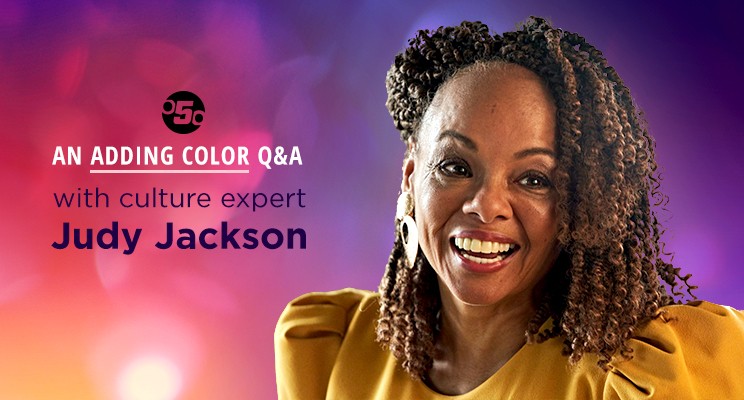Representation Matters: Q&A with Culture Expert Judy Jackson
As we celebrate the many contributions of women in history, it’s important to note how the representation of women of color brought significant change.
Where would NASA be without the engineering and mathematical talents of three Black women — Dorothy Vaughan, Katherine Johnson, and Mary Jackson? Where would the film industry be without the talents of Chinese American actress Anna May Wong, who fought for the representation of Asians in Hollywood? Where would education be without the works of Fatima al-Fihri, an Arab woman who established the oldest university? And what would freedom be without the courage of women like Harriet Tubman and Masah Amini?
Women of color have made tremendous strides and continue to impact change today.
one50one sat down with Judy Jackson, former WPP head of culture and engagement and founder of JLC Ventures, an organization geared toward creating inclusion and equity for people of color (POC) in the workplace. Jackson shared why representation matters and how companies can diversify their talent to bring new changemakers.
This interview was edited for clarity and brevity.
What does representation mean to you?
People often confuse representation with diversity. They look at the total number versus how people are distributed throughout an organization. Representation is not just the number of women or diverse groups in your company, but are they shown in the more senior layers of an organization?
If 50% of your organization is women, but only 1 or 2% of them are senior levels, we have a real problem.
It’s also essential that you don’t just have one or two people representing an underrepresented group in a workplace. Those voices generally don’t have a lot of power or support and can sometimes feel quieted. They may not feel safe sharing their opinion. You need more representation so underrepresented groups can feel heard and supported.
We know when you have more diverse leaders, you have a better, more progressive and successful organization because you’re bringing different minds to the workplace.
How has the position of women in the workforce changed?
There has been some movement, certainly for white women in the workplace, but it hasn’t had the same effect on women of color — particularly not Black women.
We still lack women of color in leadership roles. I think if we are being honest with ourselves, we’ll recognize that, in our minds, most people do not view women or POC as what a leader looks like. Most people’s vision of a leader is typically a white male from a certain kind of school, specific kind of background, etcetera.
Somehow, we have to create empathetic leaders and put them in the shoes of people who are different. I will give a plug to our program JLC Ventures: Elevate, where we connect sponsors in senior leadership with Black mid-level talents, with a particular focus on Black women. The sponsors use their equity to help talent in the underrepresented group succeed and thrive in the workplace. This helps to achieve the change needed in the industry.
How can brands step up their representation game?
There’s no level of urgency when it comes to diversity and inclusion issues. There’s no level of “we’ve got to change,” but it’s interesting that when a crisis occurs, we can pull together and make change happen.
The action many companies did, particularly after the George Floyd murder, was to hire diversity, equity, and inclusion (DEI) leaders to speak out about Black Lives Matter (BLM). Speaking out is good, but it’s not an action.
Hiring DEI leaders is good, but it doesn’t create change. What happens is that organizations tend to pass off that task or sense of urgency to the people in the roles carrying the biggest burden, your DEI leaders.
Representation will change when it becomes a call to action for the organization. When the act of inclusivity is embedded into all things we do, and the act of equity is embedded in all things we do. It is when it becomes consistent, intentional, and not a reaction to something that happens in the world for a moment.
What’s one area you feel companies have not focused on enough?
I think the area we’ve not focused on enough is accountability. My wish would be to keep yourself and parts of your organization accountable for creating inclusive workplaces. That means monitoring your practices and progress, just like you watch your revenue flow and the work you do for clients. Use that same rigor around accountability toward your DEI practices.
As we close this conversation, what would you say is the moral of this story?
The practices you do to make your business successful, adapt those same practices for your DEI goals. A voice of one in and of itself is not effective. No one person can do everything to make a sustained change, but each of us can do something to make a difference. Find your “something.”
one50one would like to thank Judy Jackson for sitting down with us and dropping some knowledge gems.

